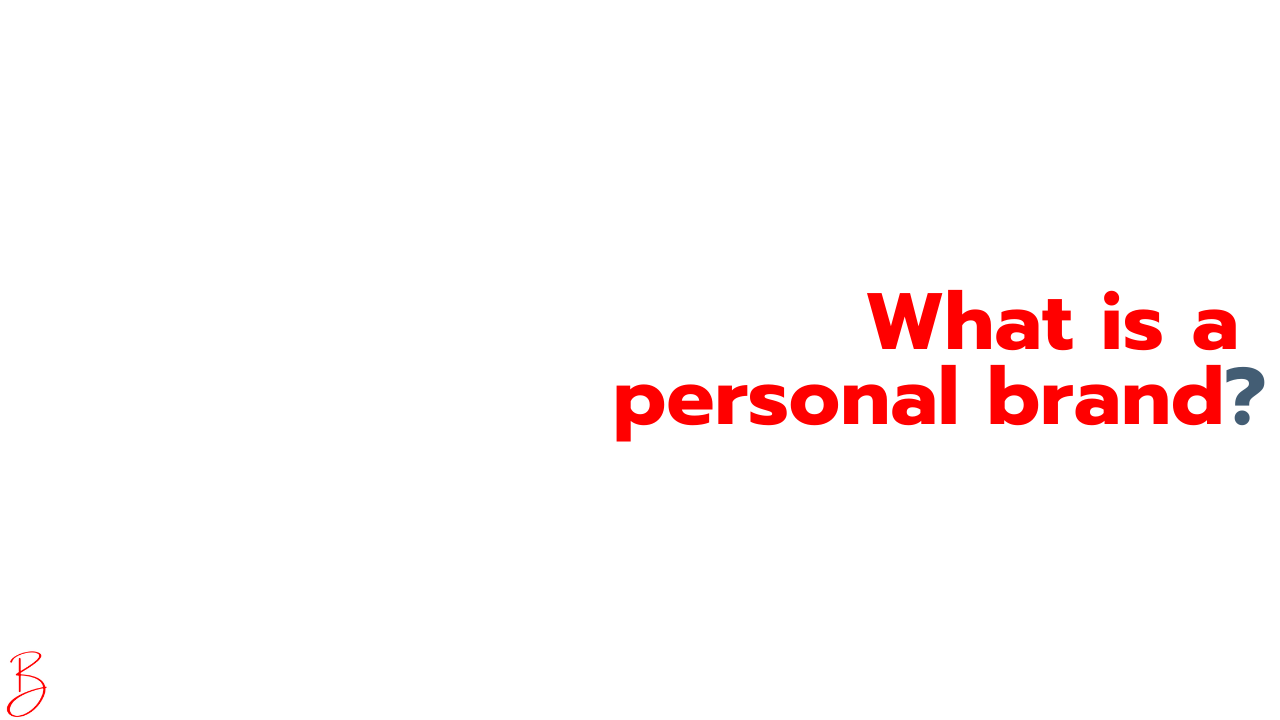
What is a personal brand?
Dec 17, 2020A simple Google search of “personal branding” AND entrepreneurs returns over 3 millions results. It is a topic of equally growing interest to researchers with the same search returning 4,330 results in Google Scholar.
Despite this surge in interest, the concept remains fuzzy in the minds of most of us. When asked to define what a personal brand is or how we can build it, entrepreneurs give a wide variety of answers. Through our workshops, webinars, masterclasses, and one on one coaching sessions, we have heard them all!
And who can blame us?
The amount of content on this topic is exploding but it rarely comes from branding experts. All of a sudden, everyone seems to (a) be building a personal brand and (b) feeling equipped to tell others how to do it.
So, let’s dispel some myths and conclude with definition of both Personal Brand and Personal Branding that are clear and usable.
What a Personal Brand is NOT
Here are some of the most common things we hear:
“Stop overthinking it. Start posting. This will mark a beginning of your personal brand building.”
Does this sound familiar? Imagine how laughable this advice would be if it pertained to your corporate brand. No, really. Imagine telling a corporate branding professional that you want to build a strong corporate brand and hearing: “Start posting. That is your brand.”
A personal brand is NOT social media posts.
“You already have a personal brand. Everyone does.”
Everyone has a reputation. But not everyone has a personal brand. Same as every entrepreneur has a business but hardly every entrepreneur has a brand.
Your reputation is important but it is NOT synonymous with a personal brand.
“Your personal brand is what people say about you when you are not in the room.”
This is a repurposed Jeff Bezos quote and we have heard it applied to so many contexts - corporate brand, personal brand, even company culture. And yet again, it is a beautifully metaphorical way of defining “reputation” but not quite summing up a personal brand.
What people say about you is NOT your brand.
“I really do want to build a personal brand, but I don’t want to create videos for LinkedIn. So I guess that personal branding is not for me.”
This is akin to saying that you won’t invest in building a strong corporate brand because you don’t want to do Facebook ads. Although Facebook ads may be a high-ROI marketing strategy and although video does quite well on LinkedIn, you don’t need either to build a brand, be it a corporate brand or a personal brand.
Parts of social media strategy do NOT a personal brand make.
So What IS a Personal Brand?
Although an agreed upon definition is yet to emerge, this is our favorite definition to date:
A personal brand is a set of characteristics of an individual (attributes, values, beliefs, etc.) rendered into the differentiated narrative and imagery with the intent of establishing a competitive advantage in the minds of the target audience.
This definition was proposed by professor Gorbatov and his colleagues in their paper entitled “Personal Branding: Interdisciplinary Systematic Review and Research Agenda” published in the Frontiers in Psychology magazine in 2018.
Let’s break this definition up into segments:
=> a set of characteristics: these are your core values, your personal mission, your vision, your unique brand voice, your personality, and what you stand for. It is essential that you uncover all of those in order to identify your unique brand essence and your unique value proposition
=> differentiated narrative and imagery: your brand story is what makes your personal brand both meaningful and memorable to your audience. This is not about the many stories you will tell as part of your content strategy; rather, this is THE story that defines your personal brand. Differentiated imagery is becoming a key component of personal brand building. Although still mostly disregarded by most people building personal brands, you can leverage color and imagery to stand out from the crowd
=> establishing a competitive advantage: as you define your personal brand, you will see that all of the steps you take and elements you work through have the aim of differentiating you from all others in your industry or your field of work
=> target audience: it is extremely important for us to look at audiences and not customer segments as we build our personal brands. Powerful personal brands go beyond the financial ROI. Strong personal brands inspire, build a following of raving fans, make an impact. Whom would you like to inspire? Who is your audience that extends far beyond your customer pool?
Sounds daunting? Brand building is indeed a lot of work but we can promise that the ROI is worth it and that it far exceeds financial gains. In this blog, we will give you tangible tools and practical ways of building your personal brand. And for now, we leave you with one last thought:
Personal branding is the process of positioning yourself as a thought leader, expert, or influencer in the minds of your target audience. So step 1? Defining your area of thought leadership and getting ready to share your authentic self at scale.
want insights from us directly?
get the best of us - directly in your inbox.

